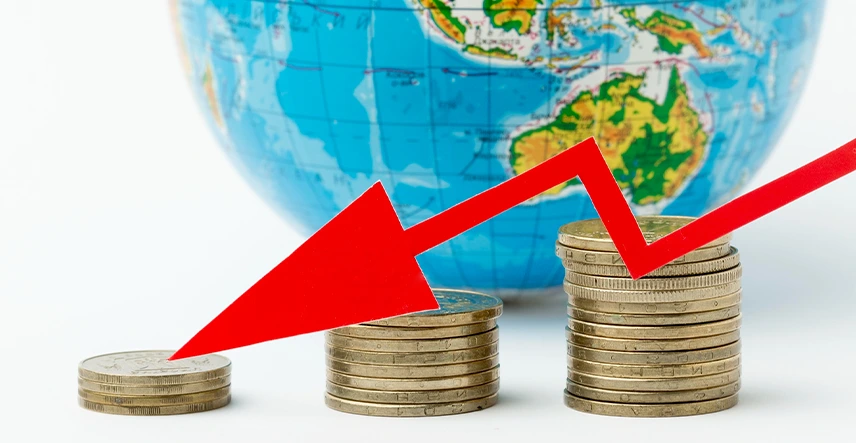20 Excellent Ideas For Choosing Currency Exchange Sites
Top 10 Tips On Currency Exchange Rate MarginAnyone who is involved with international finance and travel or business, or who manages investments across borders will need to understand exchange rate margins. Exchange rate margins represent the difference between price of buying and selling currencies and can significantly impact the overall cost of transactions. These margins can vary widely across providers, which affects how much you pay when making exchanges or the profits you earn when investing. You can save money by understanding the details of exchange rates margins. Below are ten top tips on how to effectively manage exchange rates margins.
1. What is the Margin of Exchange Rate?
The spread in exchange rates, or margin, is the difference between what a currency is to buy (ask) and the cost it takes to sell (bid). It is essential for travellers, business owners, and investors to understand this concept as it will affect the actual exchange rate they receive when they convert currency. A lower margin can be a sign of a more favorable exchange rate. This makes it easier to make informed financial decision-making.
2. Compare margins between providers
Different financial institutions, as well service providers for currency exchange will provide different exchange rate margins. Compare rates from a variety of providers like banks, exchange kiosks and online platforms. Websites like XE.com and OANDA give insights into the current rates and margins. They help you pick the most appropriate choice for your currency transactions.
3. Understanding the influences of markets on Margin
Exchange rate margins are affected by a variety of factors, including the volatility of markets as well as economic indicators. A political or economic crisis instability may result in the margins expanding because of an increase of risk. By being aware of these market trends, you will be able to be aware of changes in rates and take a timely decision about the transactions in currency.
4. Platforms for exchange online that offer currency
Online exchange platforms provide better rates and lower margins than traditional banks or physical exchange services. Wise, formerly TransferWise, and copyright offer instant exchange rates and lower fees. These platforms can dramatically reduce your costs when converting currencies for business or travel.
5. Timing Your Currency Exchange
- When you choose to exchange currencies, it may affect your margins. Rates of exchange fluctuate throughout the day, based on the market demand and supply. Being aware of these fluctuations could help you find the best exchange rates and could lead to more favorable margins. Tools that track trend of currencies are helpful when making these choices.
6. Strategies for Currency Hedging Leverage
For both investors and businesses, employing currency hedging strategies can help manage the margins of exchange rates effectively. Hedging involves the use of financial tools to lock in future exchange rates, and protect against adverse currency movements. This approach can help to increase profits and decrease the effect of margins that are growing, especially for companies who are involved in international commerce.
7. Keep an eye on economic Indicators
Diverse economic indicators, including interest rates, inflation rates, and employment statistics impact exchange rates and margins. For instance, a country that has higher interest rates could draw foreign investment, thereby strengthening its currency and narrowing the margin for exchange rates. Keep track of these indicators and you will gain valuable insights into likely changes in the currency. Make adjustments to your exchange strategies to take into account the changing conditions.
8. Consider Local Currency when Traveling
If you are traveling, opt to pay in the local currency rather than the currency of your home country. This will allow you to reduce the exchange rate margins that come with dynamic currency converter (DCC) services offered by retailers. The exchange rate is generally more favorable when you pay with local currencies.
9. Watch out for hidden charges
Be aware that the services that provide currency exchange could charge hidden costs. These can be service charges and transaction fees as well as commissions. These fees can affect the margin you earn. If you are considering converting currency, ensure you go through all the fine print and inquire about any additional charges.
10. Contact Financial Experts for Large Transactions
Consult with currency experts or financial experts if you're dealing with significant sums of cash or intricate currency exchanges. This can give you valuable insight. These professionals are able to assist you in the process of knowing the exchange rate and provide suggestions for reducing expenses. Their knowledge is particularly valuable for companies engaging in international trade or those who want to maximize their holdings of currency.
These tips will assist you navigate the complexities involved in the world of currency transactions. Understanding how to manage margins on exchange rates can assist you in making better financial decisions, aligned with your financial goals. This will end up saving you money as well as improve your financial strategy. Take a look at the most popular USD to AUD for site advice including indian rupees to usd, currency converter, japanese yen to usd, 1 usd to inr, 1 us dollar in indian rupees, usd to british pound, yen to us dollar, us to baht, usd to inr, dollar to euro and more.

Ten Suggestions For Limiting Your Transactions Based On Exchange Rates And Foreign Currency
Transaction limits play an important role in all financial activities. These limits are the maximum amount you can invest during a particular time. They are usually set by banks, financial institutions or payment platforms. Knowing your transaction limits is essential to maximize your financial strategy, as well as avoiding fees or unnecessary delays. Travelers might find that transaction limits affect their cash withdrawals or purchases, as well as other activities in foreign countries. They also impact cash flow management as well as payment processing for businesses. Investors should be aware as well of the transaction limits when buying or selling assets. The top 10 suggestions for managing limits on transactions in your financial transactions are outlined below.
1. Be aware of the transaction limits set by your bank.
Every financial institution or bank typically has specific transaction limits for purchases, withdrawals and transfers. Make sure you are familiar with the limitations of each financial institution prior to traveling or make purchases of a significant amount. This will aid you in planning and managing your finances better, and avoid issues when attempting to transfer funds abroad or making purchases. Visit the website of your bank or contact customer service for more information about your account limits.
2. Make sure you have cash withdrawals ready when you travel.
When traveling it's crucial to plan your cash withdrawals in order to remain within the transaction limitations of your bank. Once you've determined how much cash you'll need on your trip, you'll be able to calculate your daily withdrawal cap. Consider making a large amount of withdrawals in one go If you are able, to ensure you don't run out of cash. Be aware of any ATM fees that could be applicable. Make sure you have an alternative payment method should you go over your limit of withdrawals.
3. Utilize Multiple Payment Methods
If you have a limit on your transactions and you are subject to transaction limits, it could be risky to only rely on a specific kind of payment. To ensure that you always have money available, use a combination of credit card or cash, as well as mobile payment apps. This will help you avoid overstepping the limits of transactions for one account. It also allows flexibility to manage your finances travelling or doing business.
4. Monitor your Transaction Activity Regularly
Tracking all of your transactions will allow you monitor your spending. You can keep track of all your transactions using apps for mobile devices from a variety of banks. They provide the latest information on your balance, and include any charges. Monitoring your account activity will help you to better manage financial matters and avoid unexpected expenses when making purchases.
5. Ask about international transaction limits
- If you plan to make international purchases or withdrawals, ask your bank for their policy concerning the limit of international transactions. Certain banks have stricter restrictions on foreign transactions that could affect your ability to access money or make purchases when traveling overseas. It is possible to plan your trip more effectively when you are aware of these limitations.
6. Consider Setting Up Alerts for Transactions
Many financial institutions and banks offer alert systems which notify the user of upcoming limits on transactions, or any that occur. Set up alerts to help remain on top of your finances. This can be particularly beneficial for those who travel, and tend to lose track of their expenses while traveling.
7. Be aware that there are daily and annual limitations.
Limitations on transactions can differ depending on the timeframe. For instance, you can have the limits for month or daily transactions. You may be allowed to withdraw a particular amount daily, but your bank will impose a smaller limit on monthly transactions. Understanding these timeframes will help you plan transactions efficiently, and ensure you can withdraw funds whenever you need to without exceeding your limits.
8. Ask Your Bank about Temporary Limits Increases
If you believe that you'll need to make more significant transactions, speak to your bank regarding the possibility of a temporary limit increment. Many banks will raise your limits on your behalf when there's a valid reason. For instance plans for a trip or a major purchase. Contact your bank in advance to discuss your requirements and the necessary documents to make the process easier.
Review the Limitations of Payment Platforms
Use of payment platforms, such as copyright or Venmo could also lead to limitations on transactions. Every platform has their own policies on maximum transaction amounts. They may differ based on the verification process and history of your account. Check these limits prior to making any transaction to avoid interruptions or delays in the processing of your payment.
10. It is important to be aware of the restrictions regarding the investment of funds
Investors are restricted in their transactions when purchasing or selling securities through brokerage accounts. This can affect your ability in volatile markets, to quickly make trades. Make sure you are familiar with the rules of your brokerage regarding limitations on transactions. You might also want to think about the use of limit orders or other strategies to control your investment portfolio.
If you are able to comprehend and effectively manage your transaction limits, you'll be able to make sense of the difficulties of business travel, navigating the complexities of traveling and monitoring your investments more effectively. If you are aware of the policies at your bank using different payment methods, planning your cash withdrawals and monitoring your transactions, you'll be able to make better financial choices. The end result is that you will be able improve your financial planning and avoid costly fees. See the top rated homepage for CZK to EUR for more info including usd to eur, colombian peso to dollar, mexican peso to usd, rs to usd, usd jpy, us dollar to colombian peso, dollar to php, eur to usd, chf to usd, usd to cad and more.
